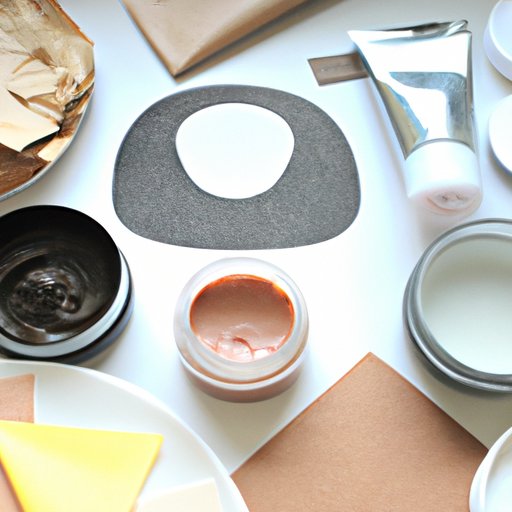Introduction
Oily skin can be a major source of frustration for many people. It’s characterized by an overly shiny appearance, enlarged pores, blackheads, and acne. It’s important to understand the causes of oily skin before you can take steps to prevent it.
Definition of Oily Skin
Oily skin is caused by overactive sebaceous glands, which produce an excessive amount of sebum (oil). This extra oil can make your skin look greasy, shiny, and thick. Oily skin is most common in teenagers, but it can also occur in adults. It’s more likely to occur in hot, humid climates and during times of hormonal changes.

Overview of the Causes of Oily Skin
There are several factors that can contribute to oily skin, including genetics, hormones, diet, and skincare habits. Genetics play a role in determining how much oil your skin produces. If your parents have oily skin, you’re more likely to have it too. Hormonal changes, such as puberty or pregnancy, can also cause your skin to become oily. Eating a diet high in sugar and processed foods can also increase oil production. Finally, using the wrong skincare products or not properly removing makeup can lead to oily skin.
Steps to Stop Face from Being Oily
Fortunately, there are several steps you can take to reduce the amount of oil your skin produces. Here are some tips for keeping your skin looking and feeling its best.
Wash your face twice a day with a gentle cleanser
It’s important to cleanse your skin twice a day to remove dirt, oil, and sweat. Look for a mild, oil-free cleanser specifically designed for oily skin. Avoid harsh cleansers, as they can strip your skin of natural oils and make your skin produce even more oil. Use lukewarm water when washing your face and gently massage the cleanser into your skin. Rinse thoroughly and pat dry.
Use an oil-free moisturizer
Moisturizing is an important part of any skincare routine, even if you have oily skin. Look for an oil-free moisturizer that won’t clog your pores. You may want to try one that contains glycerin or hyaluronic acid, as these ingredients help to draw moisture into the skin without making it greasy.
Use blotting papers to remove excess oil
Blotting papers are an easy way to quickly remove excess oil from your skin. They’re also great for on-the-go touch-ups. Look for blotting papers that are free of added fragrances and dyes. Gently press the paper onto your skin and wait a few seconds before lifting it away. Don’t rub the paper against your skin, as this can irritate it.
Avoid heavy, greasy makeup and skin care products
Heavy, greasy makeup and skin care products can make your skin look and feel even oilier. Opt for lightweight, oil-free formulas that won’t clog your pores. Make sure to remove your makeup every night before bed. You may also want to use a makeup primer before applying foundation, as this will help keep your makeup in place and prevent it from sliding off your face throughout the day.
Use a toner after cleansing
Toners help to balance the pH levels of your skin and remove any leftover impurities. Look for an alcohol-free toner that won’t dry out your skin. After cleansing, apply the toner to a cotton pad and gently swipe it across your face. Avoid scrubbing too hard, as this can irritate your skin.
Exfoliate regularly to remove dead skin cells
Exfoliating helps to remove dead skin cells and unclog your pores. Look for an exfoliator specifically designed for oily skin. Use it once or twice a week, depending on your skin type. Be sure to use gentle circular motions when exfoliating and avoid scrubbing too hard.
Use an oil-absorbing clay mask once a week
Using a clay mask once a week can help to absorb excess oil and reduce shine. Look for one that contains ingredients like kaolin or bentonite clay, as these are effective at absorbing oils. Apply the mask to your face and leave it on for 10-15 minutes. Rinse with lukewarm water and pat your skin dry.
Conclusion
Oily skin can be frustrating to deal with, but there are steps you can take to reduce the amount of oil your skin produces. Start by washing your face twice a day with a gentle cleanser, using an oil-free moisturizer, and using blotting papers to remove excess oil. Avoid heavy, greasy makeup and skin care products, use a toner after cleansing, exfoliate regularly to remove dead skin cells, and use an oil-absorbing clay mask once a week. Following these steps can help keep your skin looking and feeling its best.
(Note: Is this article not meeting your expectations? Do you have knowledge or insights to share? Unlock new opportunities and expand your reach by joining our authors team. Click Registration to join us and share your expertise with our readers.)
